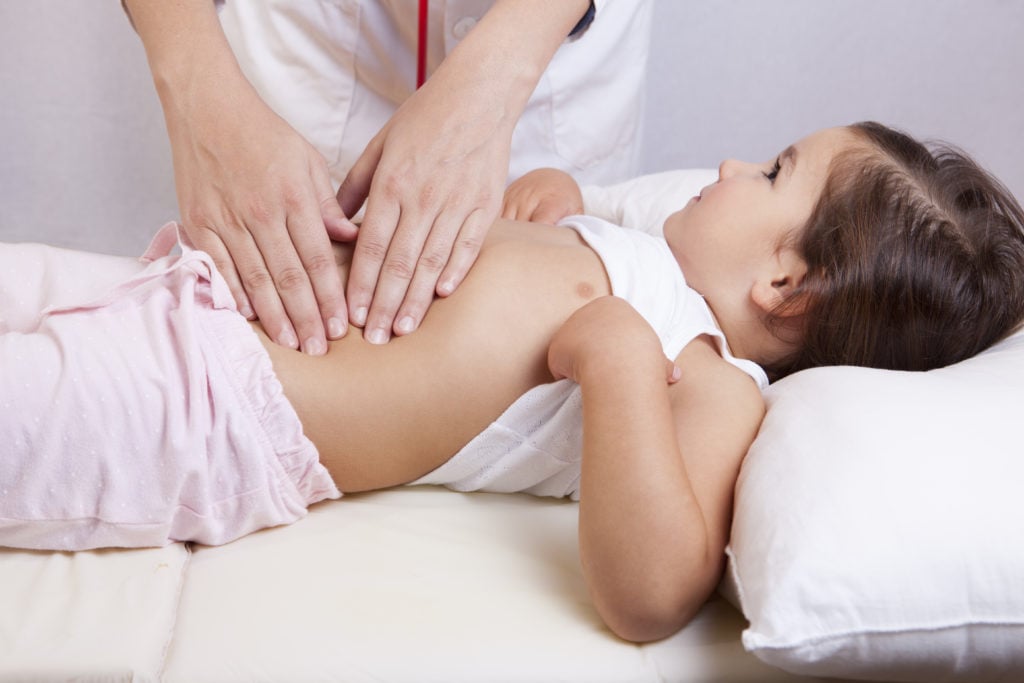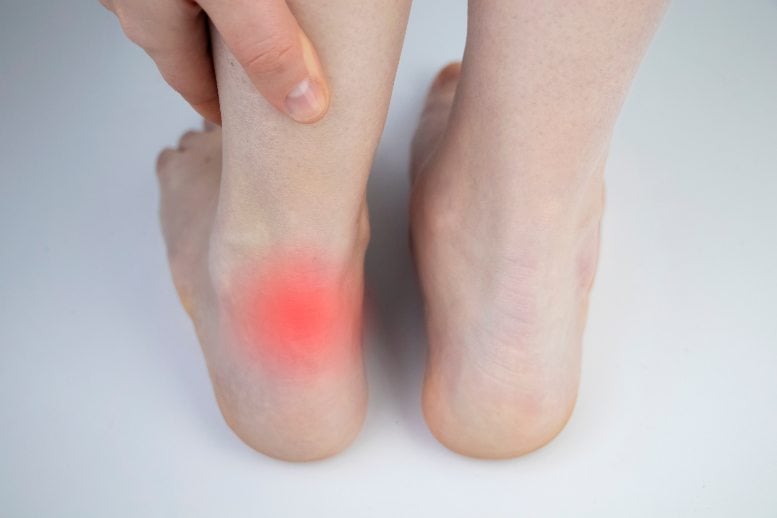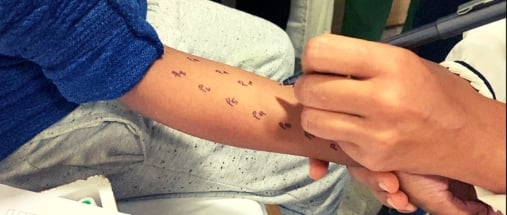Pediatric Gastroenterology
Overview
If your child is suffering from any disorder associated with food pipe, stomach, small intestine, large intestine, liver, gallbladder and pancreas as well as nutritional disorders – Our Pediatric Gastroenterology, Hepatology and Nutrition can help you!
We strive to provide comprehensive care for all gastrointestinal, liver and nutrition disorders in children like managing functional abdominal pain, celiac disease, allergic diseases of the gut, failure to thrive and other GI conditions.
What is Pediatric Gastroenterology?
Pediatric Gastroenterology, Hepatology and Nutrition is the study of gastrointestinal, liver and nutrition disorders in children.
A pediatric gastroenterologist assesses and treats children with common gastrointestinal complaints, such as abdominal pain, vomiting, constipation, diarrhoea, poor weight gain and nutritional issues.
The Pediatric Gastroenterology department at Sitaram Bhartia provides comprehensive consultations, evaluation and diagnosis, clear management plans including nutritional support.
Conditions Treated
- Gastroesophageal reflux
- Failure to thrive
- Celiac disease
- Cow’s milk and soy protein allergy
- Eosinophilic Esophagitis or food allergies affecting the gut
- Inflammatory bowel disease
- Peptic ulcer disease
- Recurrent abdominal pain
- Acute and Chronic diarrhea
- Chronic refractory constipation
- Feeding difficulties
- Malabsorption
- Pancreatic disorders
- Neonatal jaundice
- Chronic Liver Disease
- Short bowel syndrome
- Non Alcoholic Fatty Liver Disease (NAFLD)
- GI conditions in children with Autism Spectrum Disorders (ASD)
- Lactose intolerance
- Small bowel bacterial overgrowth
Services provided
- Upper GI Endoscopy
- Colonoscopy
- Foreign body removals
- Esophageal stricture dilation
- Management of Toxic Ingestions
- Variceal Band ligation
- Upper and Lower GI bleeding
- Polypectomy
- Percutaneous Endoscopic Gastrostomy (PEG) tube placement
- Liver biopsy
- Nutritional counselling: Food allergies, Gluten-free diet, FODMAPs diet
- Management of obesity and Non Alcoholic Fatty Liver Disease (NAFLD)
Disorders treated
A pediatric gastroenterologist treats many disorders ranging from chronic constipation to feeding difficulties to failure to thrive and non-alcoholic fatty liver disease. This is a glance at the disorders treated by a pediatric gastroenterologist:
Recurrent Abdominal pain:
Abdominal pain occurring more than 3 times in 3 months, is called Recurrent abdominal pain (RAP). Most cases improve by themselves but 5-10% of cases need further evaluation to find out the underlying reason.
A parent should seek a Gastroenterology referral if there is worsening pain, bloody stools, fever not responding to medications, vomiting/food refusal for a prolonged period, getting tired easily, weight loss, signs of dehydration.

Chronic constipation:
Constipation is very common in children and is the leading cause of recurrent abdominal pain. It is easily diagnosed with history and examination and can be often successfully treated with the help of some dietary modifications and medications if needed.
Generally, it tends to be shortlived, however, in some gastrointestinal motility disorders like Hirschsprung’s disease. This problem can be severe, persistent and resistant to treatment. These children typically pass stools once every week to ten days with medication.
Proper evaluation, early diagnosis and management can minimize parental anxiety and the child’s suffering.
Failure to thrive:
Failure to thrive means that the child is not able to meet the expected weight and height goals for his/her age. This could be due to decreased intake of calories or inability to absorb the nutrition consumed (Malabsorption).
Conditions leading to failure to thrive in addition to the reduced intake of food can be celiac disease, allergic disease of the gut, Crohn’s disease, Ulcerative colitis, GERD and poor motility of the gut.
Picky Eater/Feeding difficulties:
Many children are picky eaters or have feeding difficulties.
But children with severe feeding disorders don’t consume adequate nutrition required for their growth and development. Such children might consume only a few foods, or be sensitive to a particular texture of foods.
They are at increased risk for nutritional deficiencies, failure to thrive and delayed puberty.
Further evaluation is required if there is difficulty swallowing foods, difficult mealtimes, a diet restricted to certain food groups or textures, choking/gagging/vomiting, oral motor and sensory problems and PEG tube feedings.
Celiac disease:
If your child has celiac disease, consuming gluten will cause damage to his/her intestines. Gluten is a protein present in wheat, rye, barley.
Celiac disease can cause poor growth, anemia, malabsorption, diarrhea, constipation and if left untreated, can lead to T cell lymphoma of the small intestine.
It can be completely managed by changing your diet completely to Gluten-Free Diet. Siblings of the children tested for celiac disease are also at risk of developing celiac disease and should be screened for it.
Our department can provide you assistance with all aspects of celiac disease, including diagnosis, treatment, nutritional management, assistance with restaurant eating and food shopping.
Procedures performed
A pediatric gastroenterologist can perform many procedures ranging from upper gastrointestinal endoscopy to foreign body removal to colonoscopy. This is a glance at the procedures performed by a pediatric gastroenterologist :
Upper GI Endoscopy:
Upper Endoscopy is when the doctor uses a camera and light to look at the throat, food pipe, stomach and upper intestine to see what is causing stomach pain, diarrhea or other problems.This is a very common procedure routinely performed by gastroenterologists, It is a 5-10 minute procedure and the patient is made comfortable with some medicines.
Patient needs to not eat or drink anything for at least 6 hours before the procedure and can be discharged within 1-2 hours after completing the procedure. Patient can often complain of throat pain or throat itching and some gas within the first 24 hours of the procedure.
Dr. Nidhi Rawal has performed over 2000 of these procedures.
Colonoscopy:
Colonoscopy is when the doctor uses a camera and light to look at the last part of the intestine to find out why are the kids having diarrhea, bleeding and stomach ache.
It is performed routinely by gastroenterologists. Colonoscopy can take anywhere between 15 minutes to 45 minutes, depending on the age of the child. Patient should not eat or drink for at least 6 hours before the procedure and can be discharged within 1-2 hours after completing the procedure.
Some grassiness and stomach cramping is to be expected in the first 24 hours, which resolves spontaneously.
Foreign body removals and toxic ingestions:
Young children have a tendency to put everything in their mouth and at times, they ingest things like coin, toy batteries, small toy pieces, magnets, harmful chemicals like bleach, toilet cleaner etc.
It can cause permanent damage to the food pipe and the stomach and hence, we encourage families to bring children to the hospital immediately for further evaluation.
These foreign bodies are removed by performing an upper endoscopy and child can be discharged the same day or in 1-3 days, depending on how much damage has been caused to the stomach and intestines.
Liver Biopsy:
Liver biopsy is a procedure which allows your doctor to take a very small sample of your liver to look for what diseases might be affecting your liver. This procedure is done with the help of some medications, to make the patient comfortable and to numb the pain from the procedure.
It is a 5-minute procedure done under the guidance of ultrasound, which minimizes the risk of complications such as bleeding and perforation. The patient stays in the hospital overnight for observation and then discharged next morning.
Percutaneous Endoscopic Gastrostomy (PEG) tube placement:
PEG tube is a feeding tube that is put directly in the stomach to provide nutrition and fluids. It is most useful for children who are unable to meet their nutritional requirements by mouth.
It is done by doing an upper endoscopy and patient is admitted to the hospital for 1-2 days to make sure the child is tolerating the nutrition well before discharging home. It is easily covered under clothes and helps such children lead a relatively
Tips for Parenting and Child Care
Any suggestion for us?
If you any have suggestions or feedback for us to help improve our services, let us by feedback by clicking on the button below –
Recent Reviews




